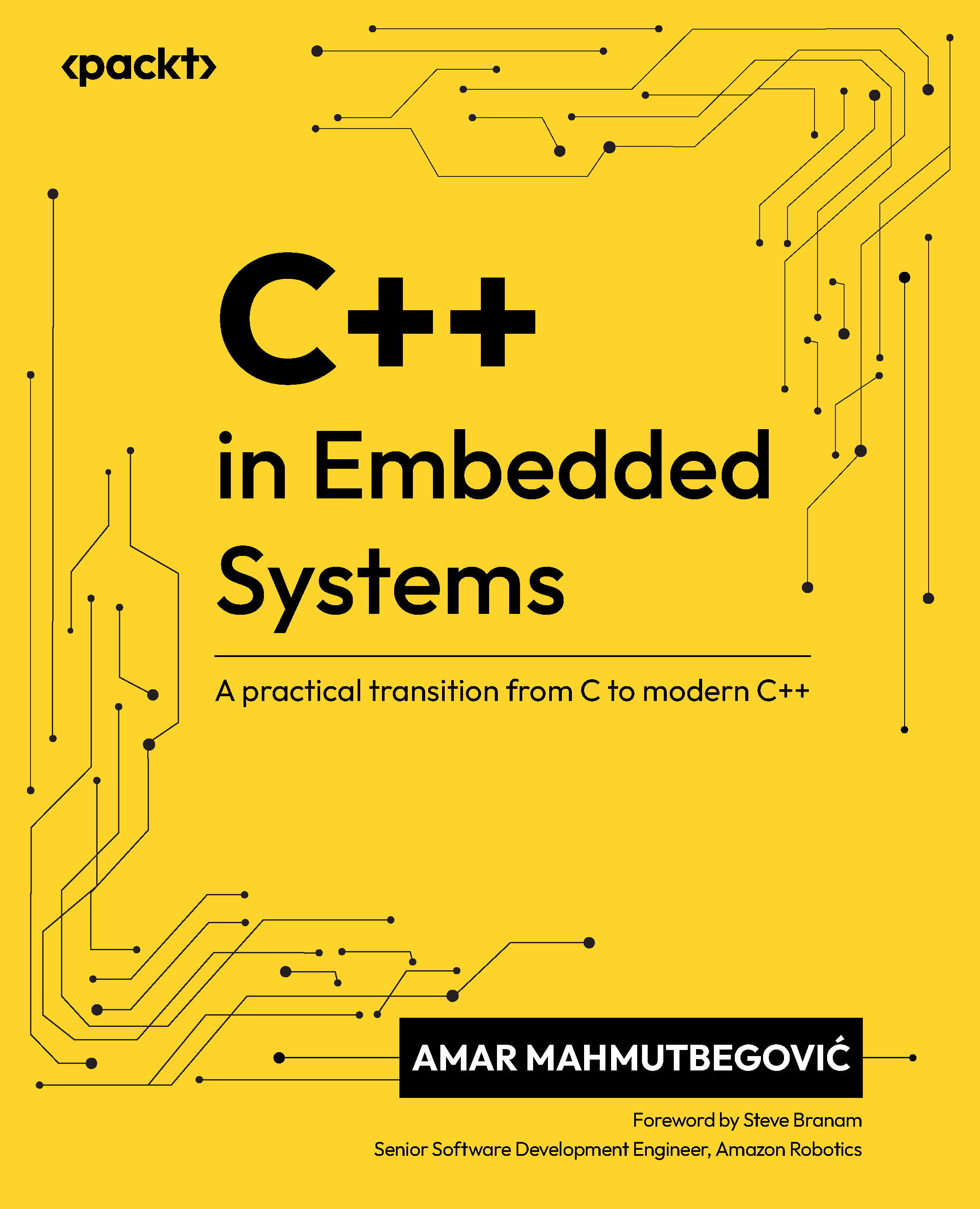Compile-Time Computation
Compile-time computation refers to the ability of a compiler to execute functions at compile time, instead of converting them to machine code. This means that the results of complex operations can be calculated by the compiler and stored in variables that are used at runtime. A compiler can execute a function at compile time only if all arguments of the function are known at compile time.
We can use compile-time computation in C++ firmware to calculate complex math operations, generate lookup tables and arrays in general, and use the generated values at runtime. Performing these operations at compile time will save valuable memory and processor (space and time) resources and make them available for other, more important operations.
The goal of this chapter is to learn how to use compile-time computation in C++ to shift complex operations at compile time and save valuable resources. In this chapter, we’re going to cover the following main topics...



























































